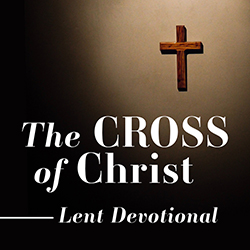Reading: The Cross of Christ pg. 112-115
For Christ has entered, not into holy places made with hands, which are copies of the true things, but into heaven itself, now to appear in the presence of God on our behalf. Nor was it to offer himself repeatedly, as the high priest enters the holy places every year with blood not his own, for then he would have had to suffer repeatedly since the foundation of the world. But as it is, he has appeared once for all at the end of the ages to put away sin by the sacrifice of himself. Hebrews 9.24-26
No two words in the theological vocabulary of the cross arouse more criticism than ‘satisfaction’ and ‘substitution’…How, people ask, can we possibly believe that God needed some kind of ‘satisfaction before he was prepared to forgive, and that Jesus Christ provided it by enduring as our substitute the punishment we sinners deserved?…The real question is whether we can hold fast to the saving efficacy of the death of Jesus, and to its traditional vocabulary (including ‘satisfaction’ and ‘substitution’) without denigrating God. I believe we can and we must…but the way in which different theologians have developed the concept of satisfaction depends on their understanding of the obstacles to forgiveness which need first to be removed. What demands are being made which stand in the way until they are satisfied? And who is making them…I shall argue, however, that the primary obstacle is to be found within God himself. He must ‘satisfy himself’ in the way of salvation he devises; he cannot save us by contradicting himself. | Stott pg. 112, 113
One of the biggest problems in the human heart is the lie we tell to ourselves that there is something we can do to appease God or buy our way into His graces. As if we could offer something greater than the weight of our sin and thus tip the balances. Be honest with yourself, what are the ways in which you’ve considered yourself ‘good enough’ to be forgiven without fully relying on the merit of Jesus’ blood alone?
Nothing in my hands I bring, simply to thy cross I cling,
Naked come to thee for dress; helpless look to thee for grace.
Foul, I to the fountain fly. Wash me Savior or I die.
-Augustus Toplady

